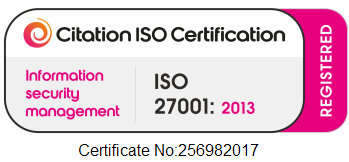How Healthcare Recruiters Can Improve Employee Engagement Rates And Staff Retention?
In the healthcare industry, an engaged workforce is key to providing high-quality patient care. However, during the last 3 years, NHS England has taken a heavy hit by the Covid-19 pandemic, increased spending and staff shortages. Recent surveys have found that 93% of healthcare workers are experiencing stress, and 76% reported exhaustion and burnout. As a result, medical staff are struggling to cope with current job role expectations and employers are suffering from low employee engagement rates.
By taking action to improve the employee experience, healthcare organisations can reduce staff turnover, better support their teams, and ultimately improve care quality.
Listening
One of the biggest barriers to improved employee engagement in healthcare is poor internal communications. When employees feel like their feedback isn’t heard by leadership, they can easily become disengaged and dissatisfied at work. This leads to more turnover and a worse patient experience. In order to increase employee engagement, healthcare leaders must conduct regular employee engagement surveys and create an action plan to address feedback.
Professional Development
Professional development and career opportunities are a great way to improve employee engagement rates and staff retention levels. Offering additional training facilities for healthcare staff can have a measurable impact on employee retention. In fact, 70% of employees would be at least somewhat likely to leave their current organisations for a job that offers better opportunities for employee development and learning.
Support & Mentoring
Strong support and mentorship can make all the difference in boosting employee morale. According to recent research, 83% of employees participating in a mentoring program said that their experience positively influenced their desire to stay at their organisation.
A coaching or peer support program can lead to strong professional relationships and happier employees. For healthcare professionals who are experiencing difficult challenges in the workplace, a listening ear can make a world of difference.
Invest In Leadership
Great leaders serve as role models and can help to encourage, mentor, advise and motivate their employees. When leaders are perceived to be out of touch because they have poor people skills, it can have a negative effect on workplace culture. Training leaders to be better can boost morale and engagement throughout medical teams and departments.
Share this post and follow us on social media!
Like our blogs? Sign up for our newsletter




Comments are closed